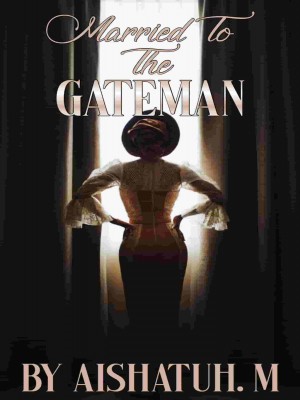
in secret
Robert William Chambers (May 26, 1865 – December 16, 1933) was an American artist and writer. He was born in Brooklyn, New York, to William P. Chambers (1827 - 1911), a famous lawyer, and Caroline Chambers (née Boughton), a direct descendant of Roger Williams, the founder of Providence, Rhode Island. Robert's brother was Walter Boughton Chambers, the world famous architect. Robert was first educated at the the Brooklyn Polytechnic Institute,and then entered the Art Students' League at around the age of twenty, where the artist Charles Dana Gibson was his fellow student. Chambers studied at the École des Beaux-Arts, and at Académie Julian, in Paris from 1886 to 1893, and his work was displayed at the Salon as early as 1889. On his return to New York, he succeeded in selling his illustrations to Life, Truth, and Vogue magazines. Then, for reasons unclear, he devoted his time to writing, producing his first novel, In the Quarter (written in 1887 in Munich ) . His most famous, and perhaps most meritorious, effort is The King in Yellow, a collection of weird fiction short stories, connected by the theme of a book (to which the title refers) which drives those who read it insane. Chambers' fictitious drama The King in Yellow features in Karl Edward Wagner's story "The River of Night's Dreaming", while James Blish's story "More Light" purports to include much of the actual text of the play. Chambers later turned to writing romantic fiction to earn a living. According to some estimates, Chambers was one of the most successful literary careers of his period, his later novels selling well and a handful achieving best-seller status. Many of his works were also serialized in magazines. After 1924 he devoted himself solely to writing Historical fiction . On July 12, 1898, he married Elsa Vaughn Moller (1882-
Tags
The case in question concerned a letter in a yellow envelope, which was dumped along with other incoming mail upon one of the many long tables where hundreds of women and scores of men sat opening and reading thousands of letters for the Bureau of P. C.—whatever that may mean.
In due course of routine a girl picked up and slit open the yellow envelope, studied the enclosed letter for a few moments, returned it to its envelope, wrote a few words on a slip of paper, attached the slip to the yellow envelope, and passed it along to the D. A. C.—whoever he or she may be.
The D. A. C., in course of time, opened this letter for the second time, inspected it, returned it to the envelope, added a memorandum, and sent it on up to the A. C.—whatever A. C. may signify.
Seated at his desk, the A. C. perused the memoranda, glanced over the letter and the attached memoranda, added his terse comment to the other slips, pinned them to the envelope, and routed it through certain channels which ultimately carried the letter into a room where six silent and preoccupied people sat busy at six separate tables.
Fate had taken charge of that yellow envelope from the moment it was mailed in Mexico; Chance now laid it on a yellow oak table before a yellow-haired girl; Destiny squinted over her shoulder as she drew the letter from its triply violated envelope and spread it out on the table before her.
A rich, warm flush mounted to her cheeks as she examined the document. Her chance to distinguish herself had arrived at last. She divined it instantly. She did not doubt it. She was a remarkable girl.
The room remained very still. The five other cipher experts of the P. I. Service were huddled over their tables, pencil in hand, absorbed in their several ungodly complications and laborious calculations. But they possessed no Rosetta Stone to aid them in deciphering hieroglyphics; toad-like, they carried the precious stone in their heads, M. D.!
No indiscreet sound interrupted their mental gymnastics, save only the stealthy scrape of a pen, the subdued rustle of writing paper, the flutter of a code-book's leaves thumbed furtively.
The yellow-haired girl presently rose from her chair, carrying in her hand the yellow letter and its yellow envelope with yellow slips attached; and this harmonious combination of colour passed noiselessly into a smaller adjoining office, where a solemn young man sat biting an unlighted cigar and gazing with preternatural sagacity at nothing at all.
Possibly his pretty affianced was the object of his deep revery—he had her photograph in his desk—perhaps official cogitation as D. C. of the E. C. D.—if you understand what I mean?—may have been responsible for his owlish abstraction.
Because he did not notice the advent of the yellow haired girl until she said in her soft, attractive voice: "May I interrupt you a moment, Mr. Vaux?" Then he glanced up.
"Surely, surely," he said. "Hum—hum!—please be seated, Miss Erith! Hum! Surely!"
She laid the sheets of the letter and the yellow envelope upon the desk before him and seated herself in a chair at his elbow. She was VERY pretty. But engaged men never notice such details.
"I'm afraid we are in trouble," she remarked.
He read placidly the various memoranda written on the yellow slips of paper, scrutinised! the cancelled stamps, postmarks, superscription. But when his gaze fell upon the body of the letter his complacent expression altered to one of disgust!
"What's this, Miss Erith?" "Code-cipher, I'm afraid."
"The deuce!"
Miss Erith smiled. She was one of those girls who always look as though they had not been long out of a bathtub. She had hazel eyes, a winsome smile, and hair like warm gold. Her figure was youthfully straight and supple—But that would not interest an engaged man.
The D. C. glanced at her inquiringly.
"Surely, surely," he muttered, "hum—hum!—" and tried to fix his mind on the letter.
In fact, she was one of those girls who unintentionally and innocently render masculine minds uneasy through some delicate, indefinable attraction which defies analysis.
"Surely," murmured the D. C., "surely! Hum—hum!"
A subtle freshness like the breath of spring in a young orchard seemed to linger about her. She was exquisitely fashioned to trouble men, but she didn't wish to do such a—
Vaux, who was in love with another girl, took another uneasy look at her, sideways, then picked up his unlighted cigar and browsed upon it.
"Yes," he said nervously, "this is one of those accursed codeciphers. They always route them through to me. Why don't they notify the five—"
"Are you going to turn THIS over to the Postal Inspection
Service?"
"What do you think about it, Miss Erith? You see it's one of those hopeless arbitrary ciphers for which there is no earthly solution except by discovering and securing the code book and working it out that way."7
She said calmly, but with heightened colour:
"A copy of that book is, presumably, in possession of the man to whom this letter is addressed."
"Surely—surely. Hum—hum! What's his name, Miss Erith?"—glancing down at the yellow envelope. "Oh, yes—Herman Lauffer—hum!"
He opened a big book containing the names of enemy aliens and perused it, frowinng. The name of Herman Lauffer was not listed. He consulted other volumes containing supplementary lists of suspects and undesirables—lists furnished daily by certain services unnecessary to mention Here he is!" exclaimed Vaux; "—Herman Lauffer, pictureframer and gilder! That's his number on Madison Avenue!"—pointing to the type-written paragraph. "You see he's probably already under surveillance-one of the several services is doubtless keeping tabs on him. I think I'd better call up the—"
"Please!—Mr. Vaux!" she pleaded.
He had already touched the telephone receiver to unhook it. Miss Erith looked at him appealingly; her eyes were very, very hazel.
"Couldn't we handle it?" she asked.
"WE?"
"You and I!"
"But that's not our affair, Miss Erith—"
"Make it so! Oh, please do. Won't you?"
Vaux's arm fell to the desk top. He sat thinking for a few minutes. Then he picked up a pencil in an absent-minded manner and began to trace little circles, squares, and crosses on his pad, stringing them along line after line as though at hazard and apparently thinking of anything except what he was doing.
The paper on which he seemed to be so idly employed lay on his desk directly under Miss Erith's eyes; and after a while the girl began to laugh softly to herself.
"Thank you, Mr. Vaux," she said. "This is the opportunity I have longed for."
Vaux looked up at her as though he did not understand. But the girl laid one finger on the lines of circles, squares, dashes and crosses, and, still laughing, read them off, translating what he had written:
"You are a very clever girl. I've decided to turn this case over to you. After all, your business is to decipher cipher, and you can't do it without the book." They both laughed.
"I don't see how you ever solved that," he said, delighted to tease her.
"How insulting!—when you know it is one of the oldest and most familiar of codes—the 1-2-3 and a-b-c combination!"
"Rather rude of you to read it over my shoulder, Miss Erith.
It isn't done You meant to see if I could! You know you did!"
"Did I?"
"Of course! That old 'Seal of Solomon' cipher is perfectly transparent."
"Really? But how about THIS!"—touching the sheets of the Lauffer letter—"how are you going to read this sequence of Arabic numerals?"
"I haven't the slightest idea," said the girl, candidly.
"But you request the job of trying to find the key?" he suggested ironically.
"There is no key. You know it."
"I mean the code book."
"I would like to try to find it."
"How are you going to go about it?"
"I don't know yet."
Vaux smiled. "All right; go ahead, my dear Miss Erith. You're officially detailed for this delightful job. Do it your own way, but do it—"
"Thank you so much!"
"—In twenty-four hours," he added grimly. "Otherwise I'll turn it over to the P.I."
"Oh! That IS brutal of you!"
"Sorry. But if you can't get the code-book in twenty-four
hours I'll have to call in the Service that can."
The girl bit her lip and held out her hand for the letter.
"I can't let it go out of my office," he remarked. "You know that, Miss Erith."
"I merely wish to copy it," she said reproachfully. Her eyes were hazel.
"I ought not to let you take a copy out of this office," he muttered.
"But you will, won't you?"
"All right. Use that machine over there. Hum—hum!"
For twenty minutes the girl was busy typing before the copy was finally ready. Then, comparing it and finding her copy accurate, she returned the original to Mr. Vaux, and rose with that disturbing grace peculiar to her every
You may also like

Married To The Gateman
Aishatuh M

The King's Protector
Eve Cheney

Social Experiment
etherachel



